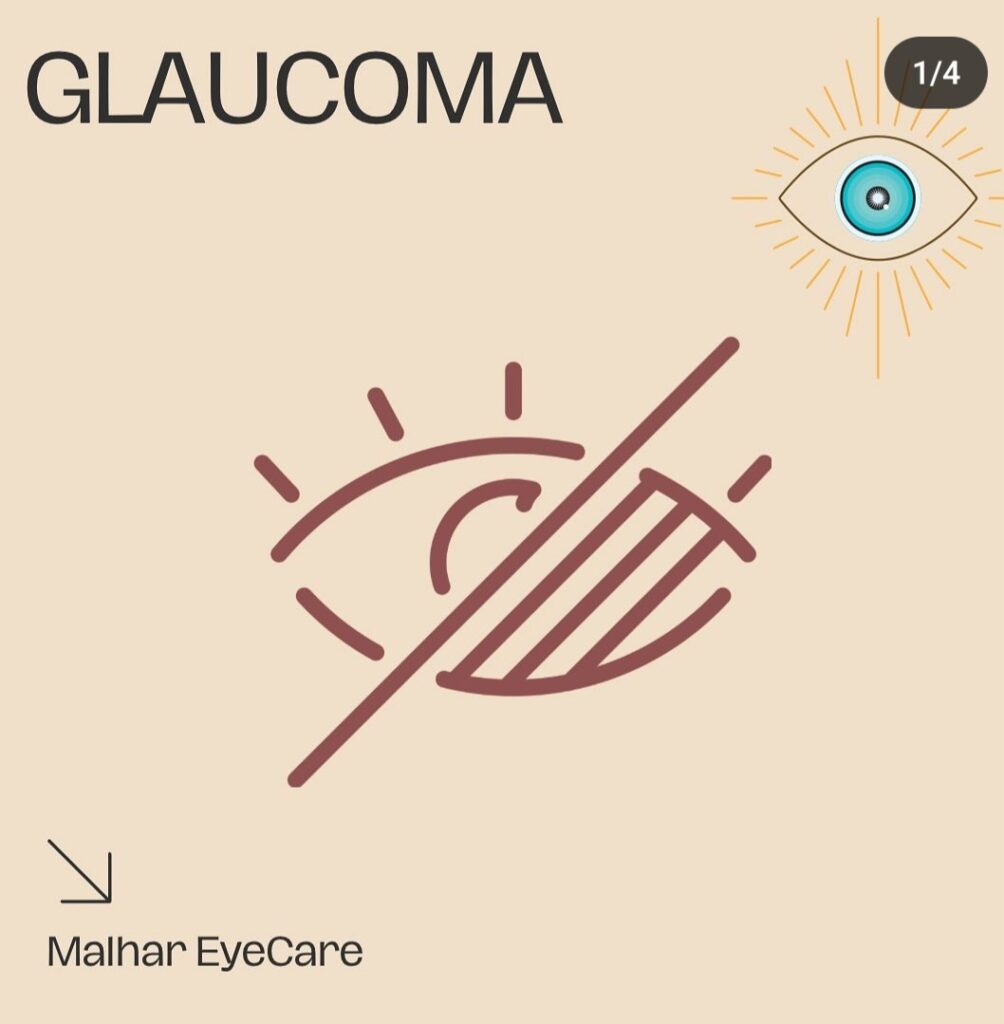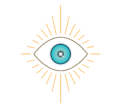Glaucoma Treatment Options: Protecting Your Vision

Glaucoma is a group of optic nerve disorders that can result in irreversible vision loss if left untreated. Often associated with elevated intraocular pressure, glaucoma can cause progressive damage to the optic nerve, leading to blindness over time. It is essential to identify and manage glaucoma early to prevent vision loss. At Malhar Eye Care, Dr. Supriya Pendke specializes in glaucoma treatment options to ensure that patients receive the care they need to protect their eyesight and maintain their quality of life.
What Is Glaucoma?
Glaucoma is not a single disease but a collection of conditions that affect the optic nerve in your eye. The optic nerve plays a crucial role in your ability to see, as it transmits images from your eye to your brain. When the optic nerve is damaged—often due to increased intraocular pressure—vision loss can occur. This damage is irreversible, which is why early detection and glaucoma treatment options are essential.
Glaucoma tends to run in families and often develops later in life, usually affecting people over the age of 40. It can be hereditary, but it can also develop in individuals with no family history of the condition. The most dangerous aspect of glaucoma is that it can progress without any noticeable symptoms in the early stages. For this reason, regular screenings are recommended for people aged 40 and above to catch glaucoma before it causes significant damage.
Symptoms of Glaucoma
While glaucoma can sometimes go unnoticed in its early stages, certain symptoms may appear as the disease progresses. Common signs of glaucoma include:
- Severe Headache: Persistent or sudden, severe headaches can be a sign of increasing intraocular pressure.
- Eye Pain: Acute or chronic pain in one or both eyes.
- Nausea or Vomiting: Accompanying eye pain and headaches, this can indicate an issue with intraocular pressure.
- Blurred Vision: Gradual loss of clear vision.
- Halos or Colored Rings Around Lights: A common sign of advanced glaucoma.
- Eye Redness: Often associated with inflammation in the eye.
- Asymptomatic Nature: In many cases, glaucoma is silent, meaning there are no obvious symptoms until significant vision loss has occurred.
If you experience any of these symptoms, it’s crucial to consult with Dr. Supriya Pendke at Malhar Eye Care for an eye exam and glaucoma screening. Catching the disease early through regular check-ups can help prevent irreversible vision loss.
Types of Glaucoma
There are several types of glaucoma, each with different causes and characteristics. The most common types include:
- Primary Open-Angle Glaucoma: This is the most common form of glaucoma, accounting for approximately 90% of all cases. It occurs when the eye’s drainage system becomes less efficient over time, leading to a gradual buildup of pressure in the eye. Open-angle glaucoma develops slowly and painlessly, often without any symptoms until vision loss occurs.
- Angle-Closure Glaucoma: Also known as acute or narrow-angle glaucoma, this type occurs when the drainage angle in the eye becomes blocked suddenly, leading to a rapid increase in intraocular pressure. Angle-closure glaucoma is a medical emergency and requires immediate attention to prevent permanent vision loss.
- Normal-Tension Glaucoma: In some cases, optic nerve damage can occur even if intraocular pressure is within the normal range. This is known as normal-tension glaucoma. The exact cause of this condition is not fully understood, but it may be related to poor blood flow to the optic nerve.
- Secondary Glaucoma: This form of glaucoma occurs as a result of another medical condition, such as an eye injury, inflammation, or the use of certain medications like corticosteroids.
Glaucoma Treatment Options
At Malhar Eye Care, Dr. Supriya Pendke offers a range of glaucoma treatment options to help manage the condition and prevent further vision loss. The goal of treatment is to lower intraocular pressure and protect the optic nerve from further damage. While there is no cure for glaucoma, it can be managed effectively with proper care and regular monitoring. Treatment options include:
1) Medications
Prescription eye drops are the most common treatment for glaucoma. These medications work by either reducing the amount of fluid produced by the eye or improving fluid drainage to lower intraocular pressure. It’s important to use these medications as prescribed to keep pressure levels stable and prevent further damage.
Your ophthalmologist at Malhar Eye Care will closely monitor your response to these medications and adjust the treatment plan as needed. Routine follow-ups are crucial for ensuring that the medications are working effectively and to make any necessary changes.
2) Laser Therapy
Laser treatment can be used to improve the drainage of fluid from the eye, lowering intraocular pressure. There are different types of laser treatments available depending on the type of glaucoma you have:
- Trabeculoplasty: Used for open-angle glaucoma, this procedure helps improve fluid drainage.
- Iridotomy: Used for angle-closure glaucoma, this procedure creates a small opening in the iris to improve fluid flow.
- Cyclophotocoagulation: This procedure reduces fluid production by targeting the eye’s ciliary body.
Laser therapy is often used when medications are not sufficient to control intraocular pressure or as an alternative to surgery.
3) Surgery
In more advanced cases of glaucoma, surgery may be necessary to lower intraocular pressure and preserve vision. There are several surgical options available, including:
- Trabeculectomy: This procedure creates a new drainage channel for fluid to leave the eye, reducing pressure.
- Shunt Implantation: A small tube is implanted in the eye to help drain fluid and lower intraocular pressure.
- Minimally Invasive Glaucoma Surgery (MIGS): This is a less invasive surgical option that can be used to treat mild to moderate glaucoma.
Your ophthalmologist at Malhar Eye Care will discuss the best glaucoma treatment options based on your individual needs and the stage of the disease.
Managing Glaucoma: The Importance of Regular Monitoring
Successful glaucoma management requires ongoing collaboration between you and your ophthalmologist. Once you start treatment, it’s important to attend regular follow-up appointments to monitor your condition and make any necessary adjustments to your treatment plan. Glaucoma is a chronic condition, meaning that treatment will likely be required for the rest of your life.
At Malhar Eye Care, Dr. Supriya Pendke emphasizes the importance of routine eye exams, especially for individuals over the age of 40. Early detection through glaucoma screening can prevent significant vision loss and help preserve your quality of life.
Who Is at Risk for Glaucoma?
While glaucoma can affect anyone, certain risk factors increase the likelihood of developing the condition:
- Age: People over the age of 40 are at higher risk.
- Family History: Glaucoma often runs in families, so individuals with a family history of the disease are at increased risk.
- High Intraocular Pressure: Elevated eye pressure is a major risk factor for glaucoma.
- Medical Conditions: Conditions such as diabetes, high blood pressure, and heart disease can increase the risk of glaucoma.
- Eye Injuries: Previous eye injuries or trauma can lead to secondary glaucoma.
- Ethnicity: People of African, Hispanic, or Asian descent are at a higher risk of developing certain types of glaucoma.
If you fall into any of these categories, it’s important to undergo regular glaucoma screenings to catch the disease early. Dr. Supriya Pendke and her team at Malhar Eye Care offer comprehensive eye exams and specialized testing for glaucoma.
Conclusion
Glaucoma is a serious eye condition that can lead to permanent vision loss if not properly managed. However, with early detection and appropriate treatment, it is possible to preserve your vision and maintain your quality of life. At Malhar Eye Care, Dr. Supriya Pendke provides advanced glaucoma treatment options tailored to each patient’s unique needs.
If you are over the age of 40 or have any of the risk factors for glaucoma, schedule an appointment at Malhar Eye Care today. Through regular screenings, early detection, and personalized care, we can help protect your vision for years to come.
